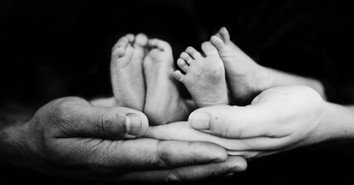Why Are So Many Pastors Committing Suicide?

In another church tragedy, megachurch founder Isaac Hunter took his own life. A father of three, Hunter had resigned from his church last year after admitting an affair with a staff member. Though his death has gained national attention because of his father’s position as spiritual adviser to President Obama, this is only one of several pastoral suicides in recent months. As such, Jennifer LeClaire of Charisma News is worried pastoral suicide is growing trend, one that needs to be addressed. She writes:
“Why the sudden rash of pastors committing suicide? Suicide is not a new problem among clergy, but three known suicides in less than two months begs a deeper look at the issue.
There is no lack of statistics about pastors and depression, burnout, health, low pay, spirituality, relationships and longevity—and none of them are good. According to the Schaeffer Institute, 70 percent of pastors constantly fight depression, and 71 percent are burned out. Meanwhile, 72 percent of pastors say they only study the Bible when they are preparing for sermons; 80 percent believe pastoral ministry has negatively affected their families; and 70 percent say they don’t have a close friend.”
Paul Tripp has written about the problem of pastoral depression as well. He notes that unrealistic expectations, tension at home, fearing man more than God, and pursuing personal glory more than God are four reasons pastors typically burn out and become depressed. “Churches forget that they've called a person who's a man in the midst of his own sanctification,” he writes. “This tends to drive the pastor into hiding, afraid to confess what’s true of him and everyone to whom he ministers. There's a direct connection between unrealistic expectations and deepening cycles of disappointment.”
Dr. James Emery White echoes these thoughts in his own post on depression. “To this day, the disappointments can still blindside me. Nothing prepares you for how ministry can drain you emotionally, leaving you in pain or, even worse, feeling numb or in despair or with seething anger,” White writes. “This is why so many good men and women in ministry have careened into moral ditches, or simply soldier on with plastic smiles and burned out souls.”
So what should pastors do to overcome feelings of depression or suicidal thoughts? Jennifer LeClaire says to start with Scripture. “If we want to win the battle against suicide in the pulpit and the pew, we need to, among many other things, take ahold of Scriptures that instruct us about the battle in our mind…If we do what the Word says—if we meditate on what the Word tells us to meditate on—the enemy’s seeds won’t take root in our souls.”
Though the nature of their job may provoke discouragement, Paul Tripp reminds pastors that depression is nothing the Lord can’t handle. “Pastor, [God is] in you and with you and for you. No one cares more about the use of your gifts than the Giver… In your despondency, don't run from him, run to him. Jesus really does offer you the hope and healing that you can find no where else.”
What do you think? How can pastors avoid ministry burnout? Are those in pastoral ministry more susceptible to depression and suicidal thoughts than other vocations?
For more related articles, please see Crosswalk’s special coverage channel on depression and mental illness.
Originally published December 12, 2013.





